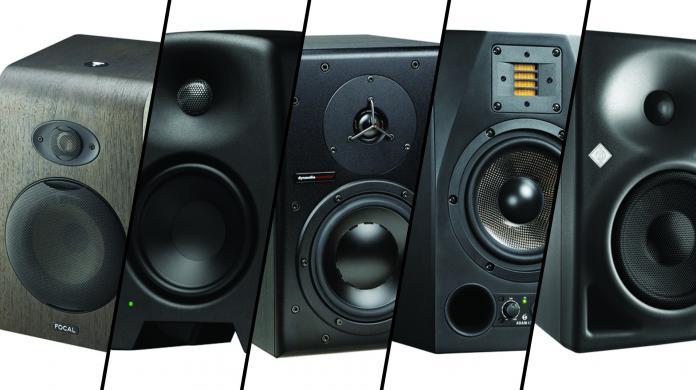We don’t think we have to say here how vital are some good studio monitors in the music production environment. Of course, they do not compose, produce, record, mix or master the tracks in your place, but “working all the time in the dark” with the hope that what you are doing there is good is not recommended.
The question we often hear is, “What good studio monitors can I buy with a budget between $1,000 and $2000?” So the simple answer would be: those that you get to like most and you are comfortable with after listening more those monitors you get used to after completing some songs and the masters or just the raw mix just the way you like.
The most advanced answer you have is below so let’s begin. As a disclaimer, it has to be said that it is only our opinion at the moment and of course that many other studio monitors in the market are good, but they did not enter today in the list.
The best studio monitors between € 1000 and € 2000
FOCAL SHAPE 65 Studio Monitor
The SHAPE family of nearfield monitors from FOCAL follow the CMS line when the French brought light to earth in the sense that the uncontestable FOCAL quality was still available but at a decent price.
The FOCAL’s and GENELEC’s reference monitors are the kind that you fall in love with from the first audition, something that is not necessarily bad, but this thing can generate addiction, and from this point, it is not so good anymore. Leaving the backstreet philosophy aside, you have below the technical specifications for Focal Shape 65 to know what it can do on papers and view it in comparison to the other studio monitors on the list.
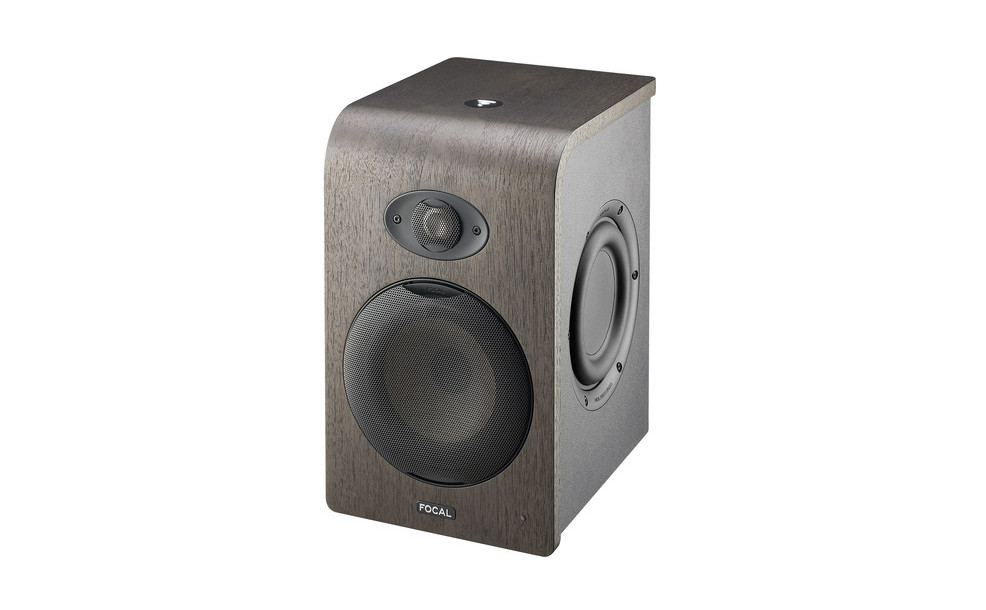
Focal Shape 65 – Nearfield Monitor Features and other Specifications
- Nominal Power: 105 W Class AB (80W + 25W)
- SPL: 109 dB
- Woofer: 6.5 “
- Tweeter: 1 “
- Frequency range: (+/- 3 dB): 40 – 35000 Hz
GENELEC M040 Studio Monitor
Genelec M040 would be our choice from all 5 monitors in this list if the budget were limited. It would also be a fantastic choice 8040 from Genelec but somehow, thanks to the design, M040 would be more suitable for more studio applications and more music production instances. Also, it would be possible to “downgrade” to an M030 and maybe add a subwoofer for a studio setup closer to ideal.
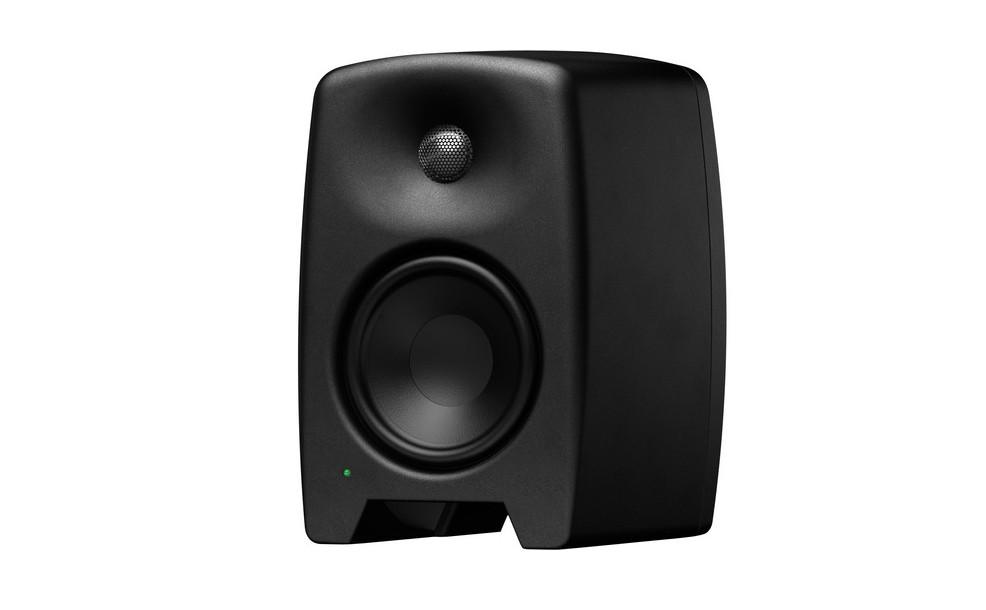
Genelec M040 – Nearfield Monitor Features and other Specifications
- Nominal Power: 130 W Class D (80W + 50W)
- SPL: 107 dB
- Woofer: 6.5 “
- Tweeter: 1 “
- Frequency range: (+/- 3 dB): 48Hz – 20kHz
DYNAUDIO BM6A Studio Monitor
Dynaudio BM6A nearfield monitors have become the “NS10” of our time. They has earned this reputation hard, in more than 10 years of existence. Dynaudio is still updating the BM series of monitors, but the BM6A are still produced and the price does not drop in a significant way, and there is no sign that Dynaudio will stop manufacturing the BM6As. This thing says a lot about these monitors!
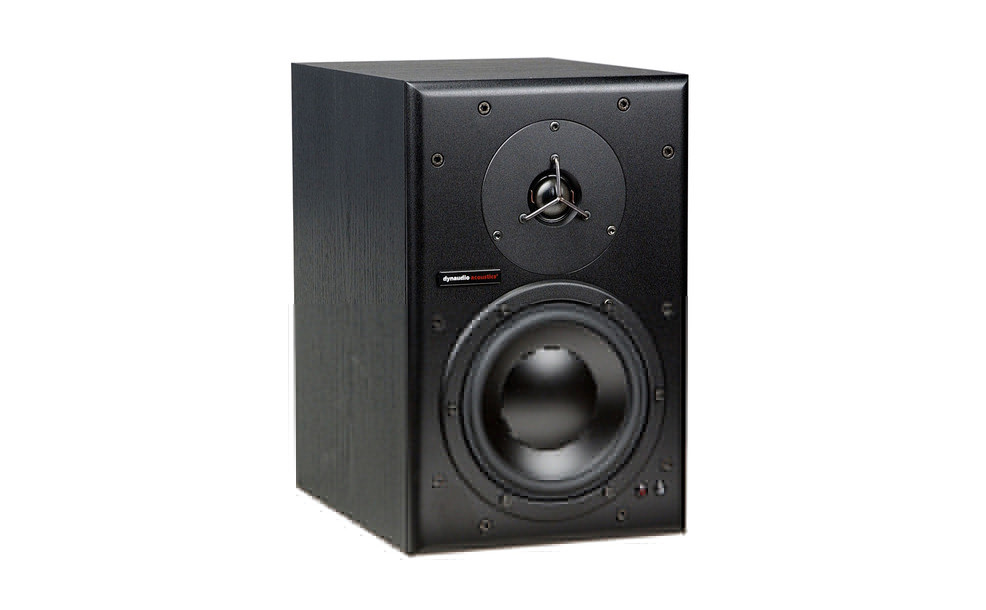
Dynaudio BM6A – Nearfield Monitor Features and other Specifications
- Nominal Power: 200W Class AB (100W + 100W)
- SPL: 119 dB
- Woofer: 6.5 “
- Tweeter: 1 “
- Frequency range: (+/- 3 dB): 40 Hz – 21 kHz
ADAM AUDIO A7X Studio Monitor
Because we were talking above about some living classics, here they are the second smashing hit monitors from this list, the A7X from Adam Audio.
The previous series of nearfields, the A7, won all the awards a studio monitor from this category can win. The A7X from Adam Audio come with that already megapopular tweeter X-ART which push the frequency range up to the sky, up to 50KHz.
Of course, there is no need for that in 99% of cases, but on papers and for PR is a fantastic thing. Beyond being haters at this moment, ADAM AUDIO A7X is a fantastic studio monitor. (It wouldn’t enter on our list if not.)
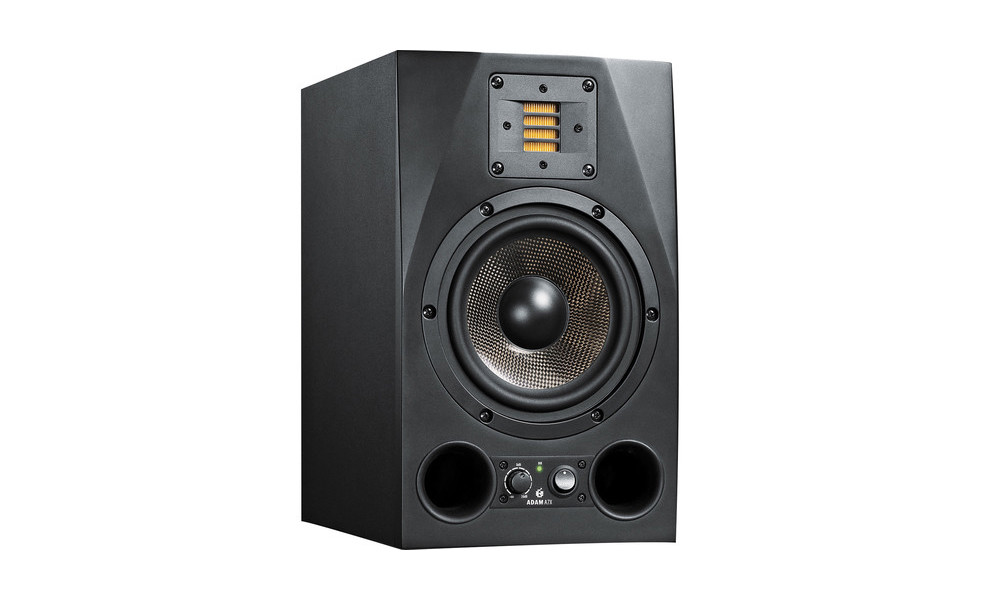
Adam Audio A7X – Features and other Specifications
- Nominal Power: 150W Class AB (100W + 50W)
- SPL: 114 dB
- Woofer: 7 “
- Tweeter: 2 “X-ART
- Frequency range: (+/- 3 dB): 42 Hz – 50 kHz
Neumann KH 120 A Studio Monitor
KH 120 A Nearfield Monitor from Neumann is on the list because in this category of studio monitors is the one you have nothing to complain about it. Of course, that on specific aspects and from a different point of view all the monitors from the list above are “better” but the KH 120 A simply fixes the job without any questions and, in our opinion, is a much better monitor than many other with “pedigree”.
If you add the fact that it is also the most comfortable we’ve tested (it does not induce that studio fatigue which appear when you work a lot) you understand why KH 120 A is the choice of many music producers, sound engineers, mixing engineers, no matter of what kind of music they produce. Okay, the monitor is not a Cinderella.
It is manufactured by some heavy names in the industry, Klein + Hummel (hence KH of the name) after the moment when they become one big family with Neumann, but it is a fact that excellence is not even close brand-specific in this part of things, and there are so many examples in one sense and the other.
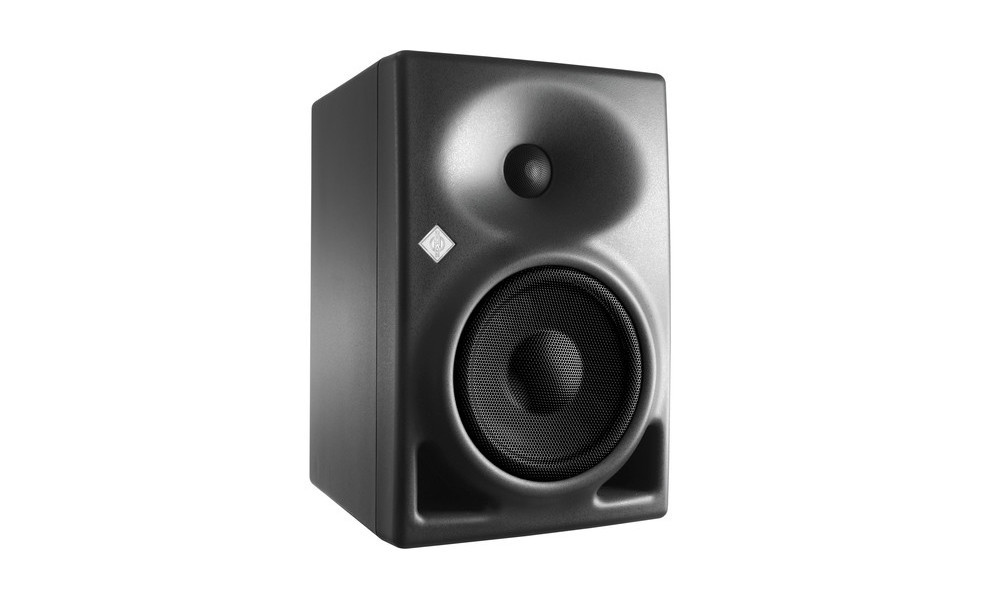
Neumann KH120A – Features and other Specifications
- Nominal Power: 100W Class AB (50W + 50W)
- SPL: 112.2 dB
- Woofer: 5.25 “
- Tweeter: 1 “
- Frequency range: (+/- 3 dB): 52 Hz – 21 kHz
AVANTONE PRO ABBEY Studio Monitor
As a bonus to this list, we must mention the ProAbbeys from Avantone. We think they are the only full-range studio monitors in the proposed budget and this aspect recommends them for many more studio applications, from recording to mix and even master.
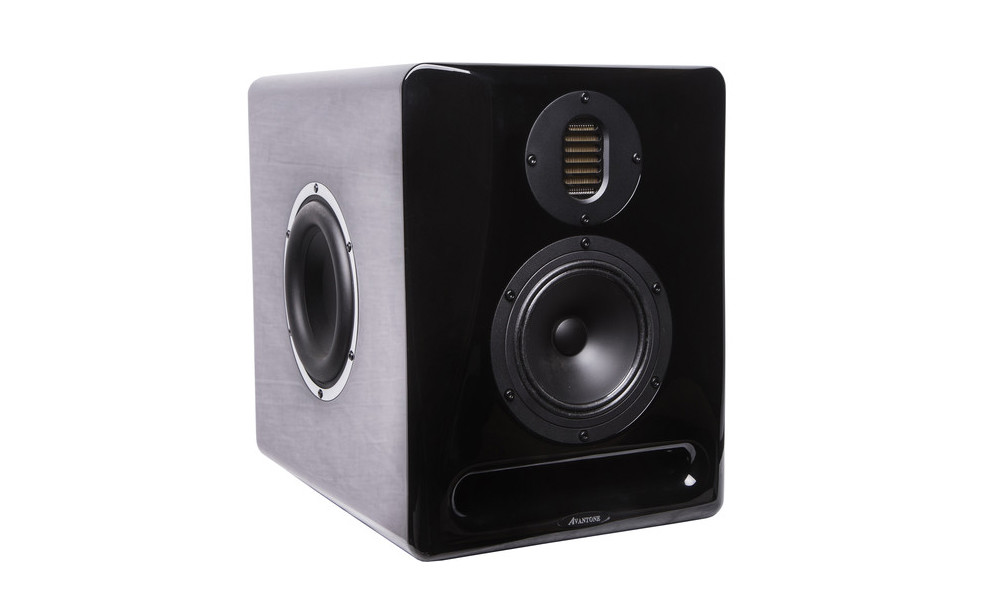
Avantone Pro Abbey – Features and other Specifications
- Nominal Power: 400W Class HD (200W + 100W + 100W)
- SPL : 108 dB
- Woofer: 2x 6.5 “
- Mid Speaker: 5.3 “
- Tweeter: 5.6 “
- Frequency range: (+/- 3 dB): 35 Hz – 38 kHz

